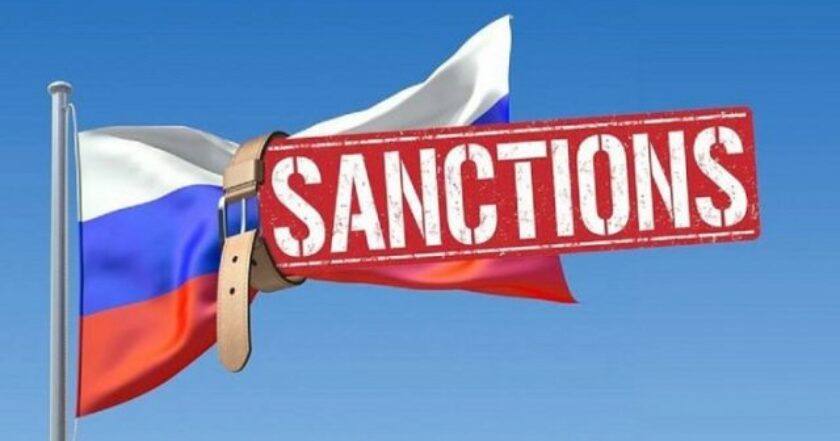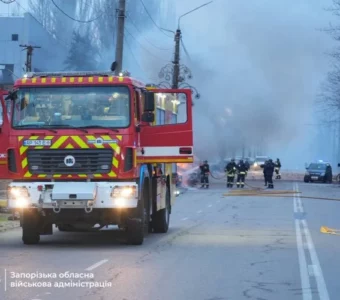The EU starts consultations on new sanctions against russia, media report

On Thursday, the ambassadors of the European Union will begin consultations on introducing new restrictions against russia
Radio Liberty correspondent in Brussels, Rikard Jozwiak, reports.
As he noted, consultations between the ambassadors about new EU sanctions against russia should begin the next day, that is, on Thursday.
"Optimistically the measures should be approved next week.," Jozwiak emphasized.
consultations among EU ambassadors on new EU sanctions on #Russia will start tomorrow. optimistically the measures should be approved next week. #Ukraine
— Rikard Jozwiak (@RikardJozwiak) July 13, 2022
The correspondent didn't specify what exactly could be included in the new package.
We will remind you that the sixth EU sanctions package against russia with a partial oil embargo was approved at the beginning of June. In particular, the EU has decided to ban the purchase, import, or transportation of crude oil and some petroleum products from russia to the European Union.
The phase-out of russian oil will last from six months for crude oil to eight months for other petroleum products.
Josep Borrell, High Representative for Foreign Affairs and Security Policy, stated, "We are banning the import of Russian oil into the EU and cutting a huge source of revenue for Russia. We are cutting off more of the key Russian banks from the international payment system SWIFT. We are also sanctioning those responsible for the atrocities that took place in Bucha and Mariupol and banning more disinformation actors actively contributing to President Putin's war propaganda."
The package was agreed upon with the difficulties. The most painful issue was the oil embargo, mainly because of Hungary's position.
Also, under pressure from Budapest, Patriarch Kirill was excluded from the sanctions list. Because of this, calls to change the principle of unanimous decision-making regarding foreign policy have intensified in the European Union. Such a call is, among other things, in the resolution of the European Parliament.
Since the beginning of the full-scale invasion, the European Union has already adopted six sanctions packages against the Kremlin. They affect almost 1,200 people and 98 organizations in russia and involve a significant number of sectors of the russian economy. Borrell said that by the end of 2022, the EU would reduce the import of russian oil by 90% and is already "rapidly reducing" the import of gas.
In early June, Bloomberg reported that continued financial pressure on putin's regime is justified, but it will not change the rules of the game. russia's main economic vulnerability remains its oil and gas exports, which the United States and its allies need to focus on.

Germany will stop buying russian coal on August 1 and oil on December 31

Ukrainian diaspora takes legal action over Canada's returning turbines to Nord Stream
Read Rubryka's daily timeline of war: current news on Ukraine's defense against russia's aggression.




















































